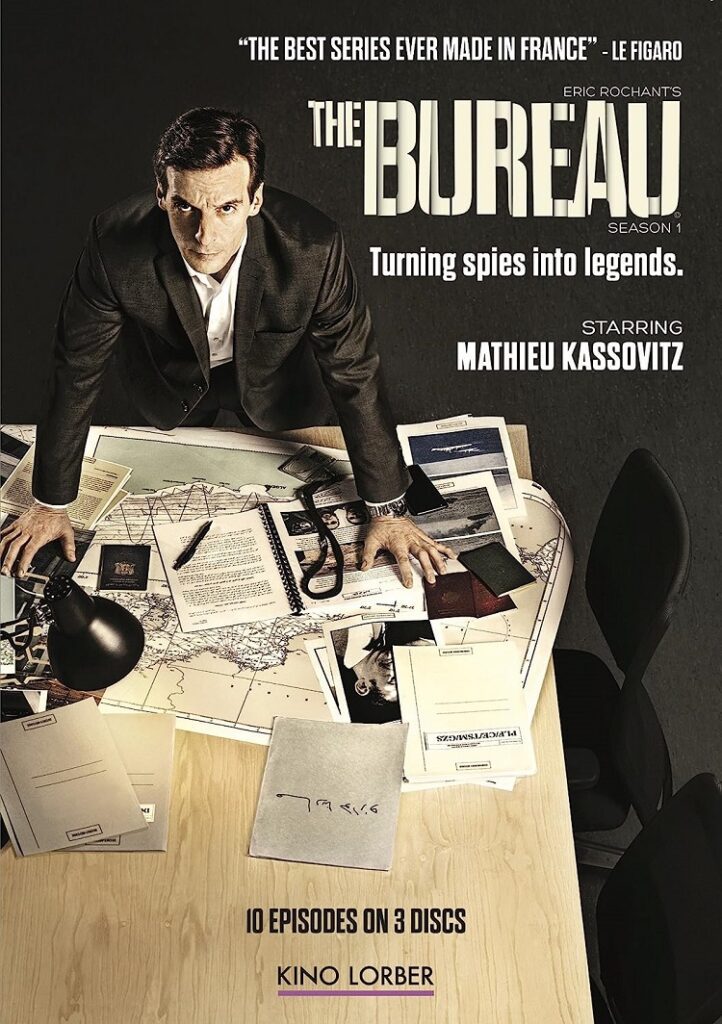
French intelligence officer Guillaume Debailly (Matthieu Kassovitz) has spent six years in Damascus under deep cover. When he left France, he severed all connections to his former life. He could not speak to his old companions, friends, or even his daughter. His only connection to home was his handler whom he spoke with via video chat. He had a completely new identity and had to forge a new life, making new connections, new friends, and new even a lover all the while secretly spying for his home country.
At the beginning of The Bureau, Guillaume is, without warning, brought in from the cold. He’s given less than 48 hours to leave Damascus and come back to Paris. He is supposed to drop everything in this new life he forged and come back to his old one. In an opening scene, we see this does not exactly happen.
While Guillaume is video chatting with his handler, telling her that he broke up with his lover and that it ended poorly – with lots of yelling and throwing of things – we see in a flashback that it was actually a very tender moment with his lover Nadia (Zineb Triki) accepting his need to leave Damascus (albeit via a made-up story). Immediately, we understand that while Guillaume is our hero he has secrets to keep hidden.
Back in Paris, Guillaume is tasked with training Marina Loiseu (Sara Giraudeau), who is about to embark on her first long-term undercover assignment. At the same time, an important contact in the Middle East (not an agent but someone an agent has turned to the cause) has gone missing. He was pulled over by the cops for driving drunk (something he never does as he’s a devout Muslim) and hasn’t been seen since. No one knows if he’s telling the terrorists everything he knows, has secretly slipped away, is dead, or what. They pull Guillaume in to help out.
While giving Guillaume new duties, Bureau Director Duflot (Jean-Pierre Darrousin) also shows he does not trust Guillaume as he has him constantly shadowed. Dufflot has seen far too many agents come back from long assignments unable to readjust to regular life. We learn, though Duffot does not, that Guillaume in fact is keeping a part of his old life as he hangs on to his old ID card and buys a cheap phone in order to call Nadia. Turns out after he left, she also fled to Paris and the two start up their relationship again. While all of this is happening, Guillaume has to adjust to office life, a new city, his old name, and redeveloping relationships with his daughter and ex-wife.
All of this is in just the first two episodes. The Bureau is thick with characters and heavy with multiple plot lines. You might want to keep notes in order to untangle all that it has going on. It’s easy to compare The Bureau to Homeland and there are certainly similarities with the espionage angles and the whole soldier returning home after a many years of living in a hostile land. But where Homeland all too often went for the big reveals and exciting set pieces, The Bureau lives in small spaces, complicated plots, and a languid pace.
I was only given the first three episodes for this review so I cannot comment on whether it ties up all its story threads, but from what I did see, it certainly unspools them with confidence. The acting is uniformly good with Mathieu Kassovitz deftly portraying a wealth of emotions as he tries to understand who he really is after becoming someone else for so long. The writing likewise is excellent, nimbly weaving complex plot lines while never skimping on the characterizations.
I’m all on board with this show. I’m looking forward to accessing the rest of the series on my own and delving into the deep end with French spies.